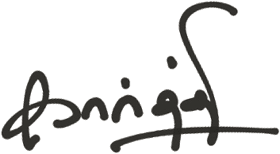Sorry Wordle fans! I am going to spoil it for you today. I cracked today's word after 6 tries but purely by elimination. The word was CAULK and I had no clue what caulk meant.So, I promptly searched Google. The minute I saw a few images, I told myself, I know this thing! I have used it myself for sealing window cracks. I learnt today how to refer it in English language. It was additive learning.
Till today morning I didn't know it. But now I know Caulk exists. Most of our learning in school is additive in nature.
This made me wonder about unlearning. If learning is mostly additive, then unlearning must be mostly subtractive isn't it?
But, I can't forget caulk so easily. I saw some images and it is etched in my memory that caulk is a sealent. So it is impossible for me to forget caulk. I can't eliminate this knowledge from my mind. Probably the only thing I can do is not think about caulk so much that i allow it to fade from the synaptic connections that my brain has made in the past few hours. So erasing at will is not an option.
We understood yesterday what makes unlearning hard. In my view unlearning is not a default human activity because the brain has evolved over several 1000 years to come here. Our information age is unfortunately not brain friendly.
So it is hard to go past our cognitive biases, distortions, fallacies, strong beliefs and assumptions in a snap of a finger. Hence subtraction is very uncomfortable on us.
So if you are wondering, how to unlearn, here are some unsexy strategies that help you unlearn 👇
Ask a number of difficult questions → Questions will trigger your curious mind → You will start figuring out how things actually work beyond your confirmation bias → (I hope) you discover something more interesting, strange and challenging your existing ideas → You start adding complexity to your simple structure → the structure gets more nuances and textures → Now you get the awareness and you start digging the truth → the truth makes you rethink your status quo → Find evidences that support your new status quo → Repeat the process. Don't settle down with things that comfort you. Keep gathering evidence (for and against) your understanding and slowly your understanding blooms. When you know what to drop/subtract, then slowly wisdom starts brewing. Unlearning is a process. With awareness you can get it in your DNA. In other words, look at every context with a beginner's mind and a new pair of eyes. This will make you more curious.
Start observing your instincts and patterns. If you are human, you will have patterns. By bringing awareness to the patterns, you can stop impulses acting on them. Journaling help. Meditation helps. It creates a gap between your default human and you. Slowly you will be able to live with the discomfort a little longer and not take any impulsive decisions. Chase the unfamiliar. Stop running after the familiar patterns. It breaks the automaton in us. Unlearning gets easier.
Use Inverse thinking as a mental model heavily. Start doing thought experiments. Question your choices. Start asking the opposite questions.
What would happen if the opposite choice is chosen?
What if I have only two hours to do this?
If I eliminate this step how will I do it?
What will happen if I skip this step?
& more.
This inverse thinking model helps you to think about things radically. It prevents you from getting trapped by cognitive biases and fallacies.
Happy Unlearning ⚡️

